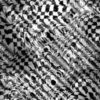I will begin by asking, what is illusion?
It’s used in rituals.
Is paradox an example of illusion? Escher’s work, it seems to me, is mostly paradoxical. Oh, indeed. It is a deep, even pivotal element of illusion.
Something that appears one way but is another. Escher did a lot of illusion. Stairs going up, but if you walked them you went nowhere. Well, they went forever up, with no down. Go the other way and it’s still up.
Something you believe isn’t real.
I have two statements to make that will be the fulcrum of this topic. There is no illusion, and there is no reality. How do we come to believe in reality as any form of principle or to lay claim to awareness or even perception of reality?
We agree.
Through experiences.
Persistence of perceptual influence. Repetition? People are addicted to this persistence of perceptual influence.
Object permanence, learned as a child.
Through human perception and yes, agreement of others.
Awareness, yes, perception.
So, reality is an agreement? Yes. What if we all disagree? I will go into that.
We become aware of our lives through the power of attention. Something comes to our attention or for all intents and purposes for us it is not real, has no practical reality. Is this not so?
It’s real because we recognize it as real?
Practical reality seems to be a sort of consensus.
It is real because we have a state of awareness we consider to be recognition. We believe we can recognize things. We believe that we have experienced them before. It’s an interesting belief, but is it error free?
No, it’s not, and it’s subject to influence by the perceived reality of others.
Some of the world’s most famous thinkers even made a deliberate practice of looking at things without making the assumption of recognition. This is how they got so many otherwise unthinkable ideas for their time and culture.
We, each of us, have habits of attention. This can even be examined with the most detailed scientific equipment available. It’s reliable enough that they can set up a neural profile to serve as the basic software of a brain computer interface device, and once this profile is recorded, you will be able to use the interface reliably. Fascinating, no? But even with no computer in the picture, you still use this interface in dealing with your day to day world.
Is this neural profile a “neutral” profile as well? Where is the base line? Oh, the profile is not neutral. For the most part, I couldn’t use your profile and you couldn’t use mine. The reason they can make sense of it at all is because the brain maps out a sort of hologram of the body across its neural network, and those abstract “maps” do remain largely consistent across all people.
Your thoughts are welcome. Be well friends.
Travis Saunders
Dragon Intuitive
~science,mysticism,spirituality~



Leave a Reply